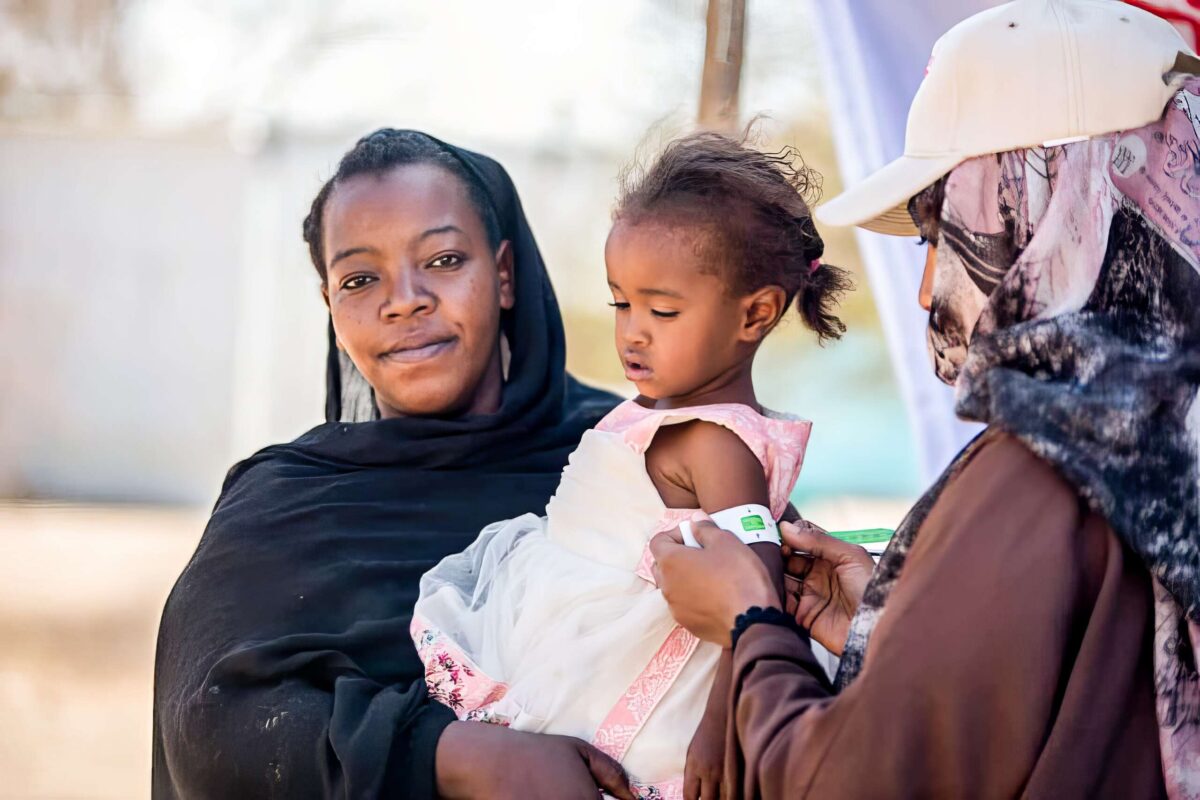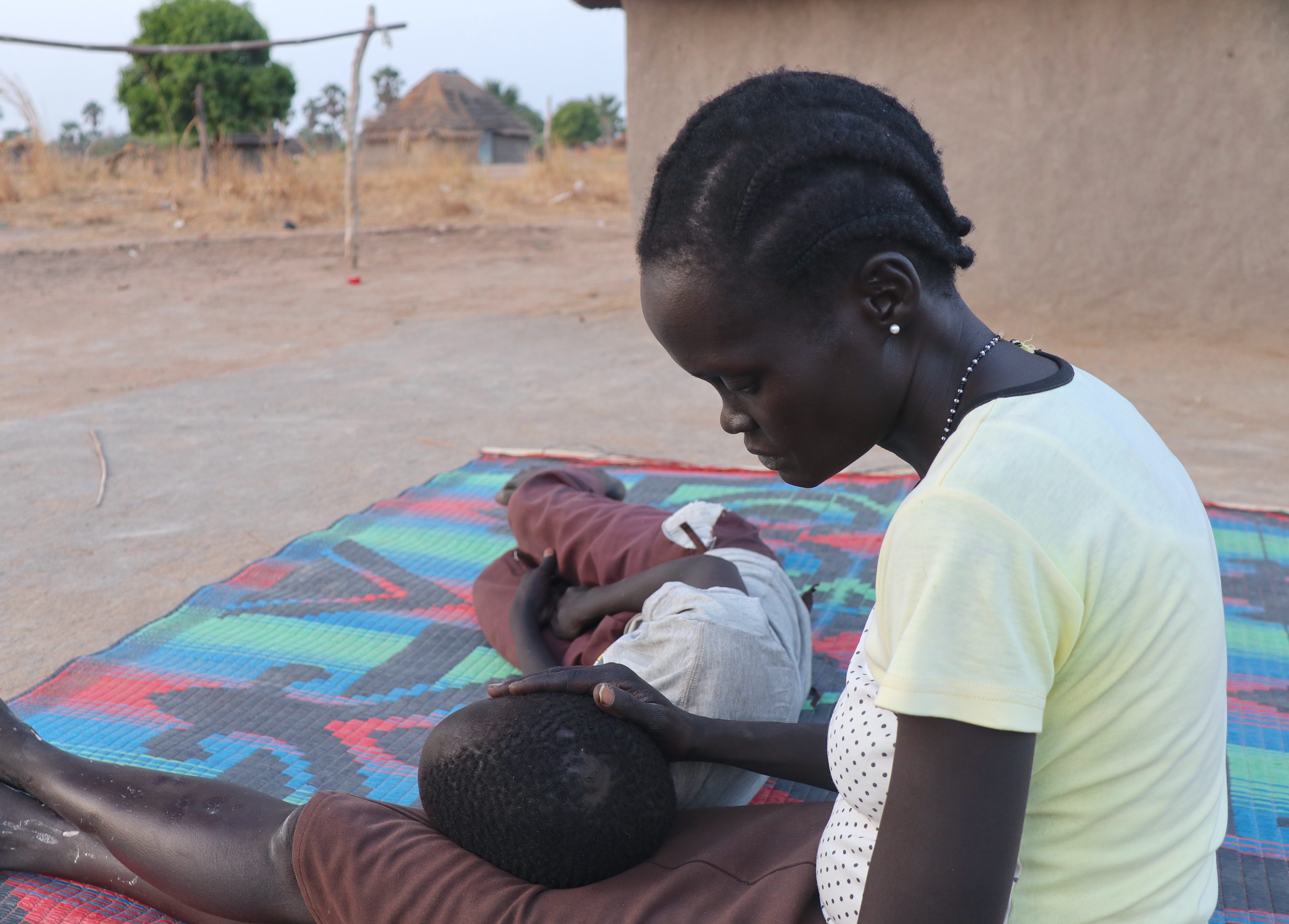Sudan's Brutal Realities: Young Mothers & Crisis
Can you imagine a world where the simple act of feeding your child is a daily battle, where safety is a distant dream, and where hope dwindles with each passing day? This is the brutal reality faced by countless women and children in Sudan, a nation ravaged by conflict and teetering on the brink of humanitarian collapse.
The scars of war run deep in Sudan, etching themselves onto the lives of its people. For two long years, the nation has been ensnared in a brutal conflict, leaving a trail of devastation in its wake. The consequences are staggering: 10.8 million people, half of whom are children, have been displaced, forced to abandon their homes in search of sanctuary. Families, torn from their livelihoods and support systems, find themselves grappling with the desperate struggle to survive. Finding food, securing shelter, and accessing basic necessities have become monumental tasks, overshadowing any semblance of normalcy.
The impact of the conflict is particularly devastating for women and girls. Since the start of this brutal struggle, they have come under constant attack, facing threats of abduction, rape, forced marriage, and sexual captivity. This rise in violence reflects the deliberate targeting of women and girls, compounding the already dire humanitarian situation.
The urgency of the situation is further highlighted by the unprecedented nutrition crisis gripping the nation. Millions of young lives hang in the balance as Sudan faces a malnutrition emergency. The UN agency has been working to provide essential aid, and has testified the value of food assistance for internally displaced people (IDPs): "It means that a father who has been torn from his home in Khartoum can feed his family of four; It means that a mother in an IDP camp in Kassala can cook a simple meal for her young daughters."
In the face of this crisis, stories of resilience emerge, painting a picture of human fortitude. Consider the experiences of Nyakuma, 22, and her younger brother Ajou, 14, displaced by the conflict and struggling to survive in harsh conditions in South Sudan. Their story reflects the plight of countless siblings separated by the war and forced to navigate a world where access to education and basic needs like water are luxuries, not rights.
The international community is urgently called to action. The UN agency is seeking $400 million over the next 100 days to scale up support in Sudan, but the needs far outweigh the resources available. Staff have been working tirelessly, providing education, protection, health, water, sanitation, and hygiene (WASH) services to over four million children, mothers, and families across the country since the war began. However, the scale of the crisis demands a more robust and sustained response, involving concerted international efforts to alleviate suffering and address the root causes of the conflict.
The plight of Peter Ksamay Jsiu and his 11-month-old son, Athian, further underscores the urgency of the crisis. Athian, who should weigh up to 11.5 kilos, weighs only 5.5 kilos, a heartbreaking reflection of the impact of malnutrition on the youngest and most vulnerable victims of the conflict. The father who cares for him lives amid the chaos and devastation, striving to provide for his son and navigate the treacherous path of survival in a war-torn nation.
The story of Nya, a fictional character from Linda Sue Park's novel "A Long Walk to Water," resonates deeply with the realities faced by many young girls in South Sudan. While Nya is a fictional character, her struggles in search of water, are rooted in the daily realities faced by countless girls. Their story, like the reality of so many others, serves as a powerful reminder of the human cost of the conflict and the importance of addressing the underlying issues that perpetuate suffering.
The situation in Sudan is compounded by poverty, with more than 46% of the population living below the poverty line. Low incomes, food deficiencies, and ongoing violence exacerbate already harsh conditions. The experiences of these diverse voices mothers, grandmothers, nurses, teachers, students, and community workers all share the burden of care and responsibility in Sudan and in neighboring countries. Early pregnancies often lead to social stigma, economic hardship, and the loss of educational opportunities, trapping young mothers in a cycle of poverty.
The recent displacement of thousands of children and families from Wad Madani town in Gezira State, about 200km southeast of Khartoum, further emphasizes the urgency of the crisis. Tawassul, Muayad, and thousands of children, are now displaced for the second time as the conflict continues to spread, forcing them to face an even more uncertain future.
Cut off from their livelihoods and support systems, displaced families on the move are grappling with the harsh reality of finding food. For many, daily meals consist of inadequate and non.
The Unicef has reported the dire need of the community and is working for supporting the children. The UN agency is urgently seeking funds.



Detail Author:
- Name : Aliyah Flatley MD
- Email : elena93@rutherford.biz
- Birthdate : 1983-05-23
- Address : 388 Dale Trafficway Apt. 662 South Amaratown, SD 13418
- Phone : +19093976714
- Company : Maggio and Sons
- Job : Air Crew Member
- Bio : A dolor sint doloremque. Laboriosam rerum et aut cupiditate. Rerum quaerat fuga commodi nemo quia et ipsam. Autem aperiam sed doloremque eos.